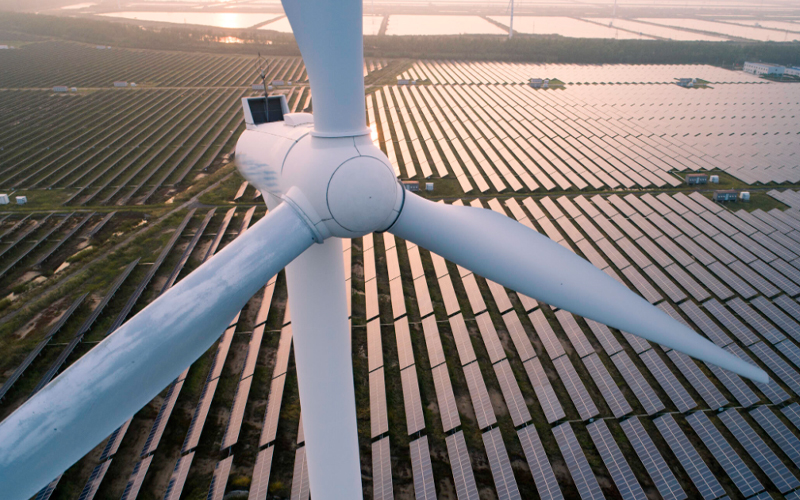The transactive energy market represents a paradigm shift in the utility sector, ushering in a future marked by efficiency, flexibility, and decentralized energy systems. This emerging model leverages advanced technologies like blockchain and smart contracts to enable a real-time, peer-to-peer exchange of energy between producers and consumers. As utilities embrace this innovative approach, the landscape of energy distribution is undergoing a transformative evolution.
This article explores the key facets of the transactive energy market, from its inception to the challenges and promises it presents for the utilities of tomorrow. Let’s get started!
Understanding the Transactive Energy Market
The transactive energy market operates on the principle of a decentralised, real-time energy exchange facilitated by advanced technologies. Utilising blockchain and smart contracts, this model enables direct peer-to-peer transactions between energy producers and consumers. Through a transparent and automated system, participants can buy and sell energy based on real-time demand and supply, fostering a dynamic and responsive energy ecosystem.
Technology and digitalisation play a pivotal role in the functionality of the transactive energy market. Blockchain ensures secure and transparent transactions, eliminating the need for intermediaries. Smart contracts automate the execution of agreements, streamlining processes and reducing operational complexities. Digitalisation enables the integration of diverse energy sources, such as renewables, into the grid, optimising resource utilisation.
For utilities, the transactive energy market presents a paradigm shift. They evolve from traditional roles to orchestrators of a decentralised network, fostering innovation in business models. The benefits extend beyond utilities to consumers who gain greater control over their energy consumption and costs. The model encourages sustainability by seamlessly incorporating renewable energy sources. It also enhances grid resilience and reliability, ensuring a more efficient and responsive energy distribution system.
Key Components of Transactive Energy Market
The transactive energy market comprises several key components that collectively redefine the landscape of energy generation, distribution, and consumption. At its core, this market thrives on the reаl-tіme, peer-to-peer exchange of energy between producers and consumers, facilitated by advanced technologies.
Energy generation and distribution systems form the backbone of the transactive energy market. Decentralised sources, such as solar panels and wind turbines, play a pivotal role in diversifying the energy mix. This shift challenges traditional, centralised models, fostering a more resilient and sustainable grid.
Smart grids, smart meters, and Internet of Things (IoT) devices emerge as critical enablers in this paradigm. Smart grids facilitate the seamless integration of distributed energy resources, optimising grid efficiency and reliability. Smart meters provide real-time consumption data, empowering consumers to make informed decisions about their energy usage. IoT devices contribute to the interconnectedness of the energy ecosystem, enabling secure and efficient communication between various components.
Data management and analytics are paramount in the transactive energy market. The vast amounts of data generated by smart grids, meters, and IoT devices are leveraged to gain insights into consumption patterns, optimise energy distribution, and enhance grid resilience. Effective data management ensures the reliability of transactions and supports the dynamic decision-making required in this decentralised energy paradigm.
Impacts and Opportunities of transactive energy market on utilities
The transactive energy market brings forth profound impacts and promising opportunities for utilities, reshaping the traditional dynamics of the energy sector. As utilities transition to this innovative model, several key impacts come to the forefront. Firstly, the transactive energy market compels utilities to redefine their roles, transforming from mere service providers to active orchestrators of a decentralised energy landscape. This shift introduces a new level of flexibility, efficiency, and responsiveness in energy distribution.
Moreover, the integration of renewable energy sources stands as a pivotal impact. The transactive energy market seamlessly accommodates distributed energy resources like solar and wind, allowing utilities to optimise the utilisation of clean energy. This not only aligns with global sustainability goals but also positions utilities at the forefront of environmentally conscious practices.
Opportunities abound for utilities in this evolving market. The ability to optimise energy distribution and consumption through real-time, peer-to-peer transactions empowers utilities to enhance grid reliability and efficiency. By leveraging advanced technologies such as blockchain and smart contracts, utilities can unlock innovative business models centered around demand response, energy storage, and improved grid management.
Final Thoughts on the transactive energy market
In conclusion, the transactive energy market emerges as a pivotal transformation for utilities, redefining their role in a dynamic energy landscape. Its significance lies in fostering efficiency, sustainability, and adaptability through decentralised, peer-to-peer energy transactions. The potential benefits, from enhanced grid reliability to optimised resource allocation, underscore its promise. To thrive in this evolving paradigm, utilities must embrace the transactive energy future, leveraging the opportunities it presents for innovation and sustainable energy solutions. Now is the time for utilities to shape a more agile and responsive energy ecosystem. Join the energy evolution! Embrace the future with a digital mindset and innovative solutions.







